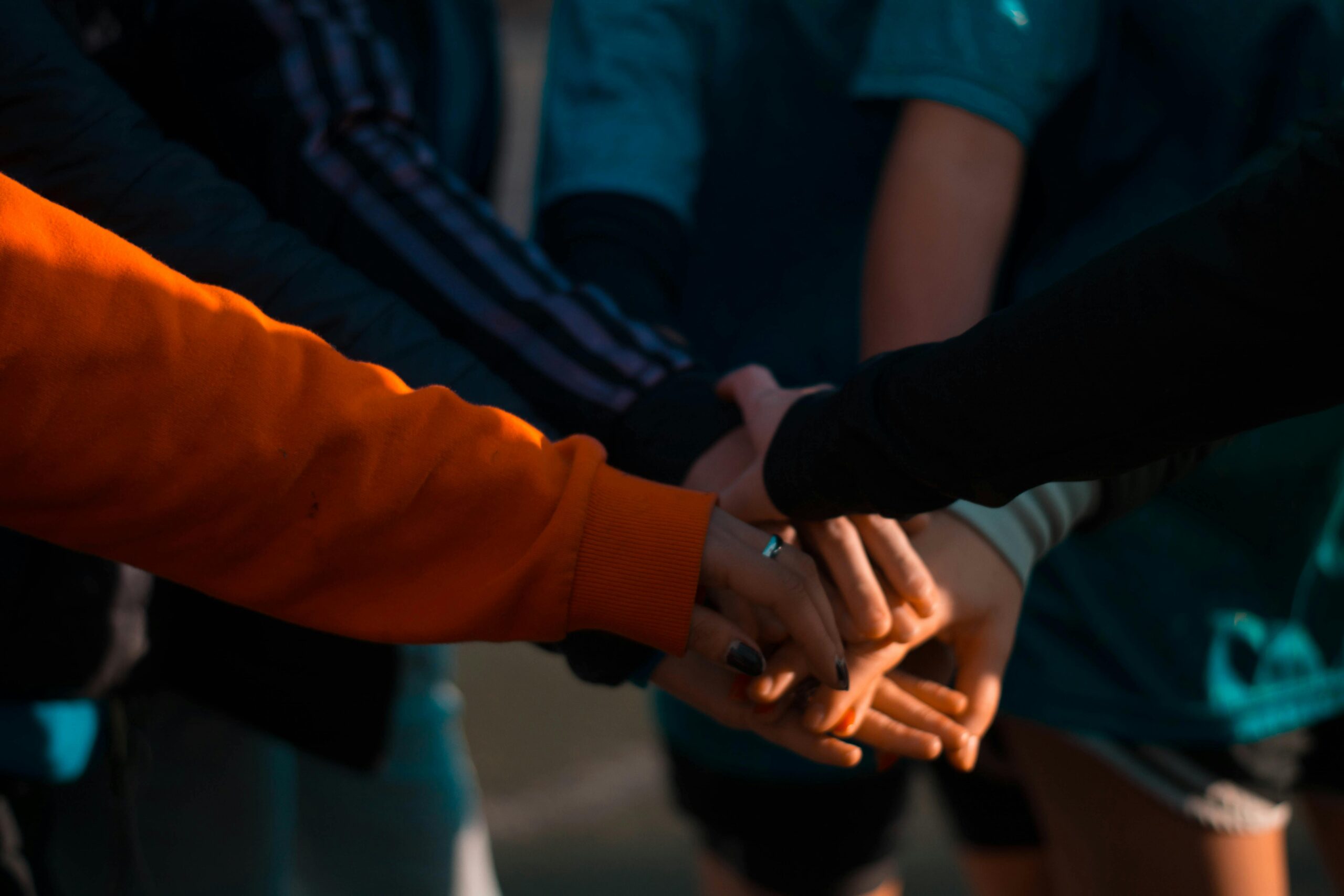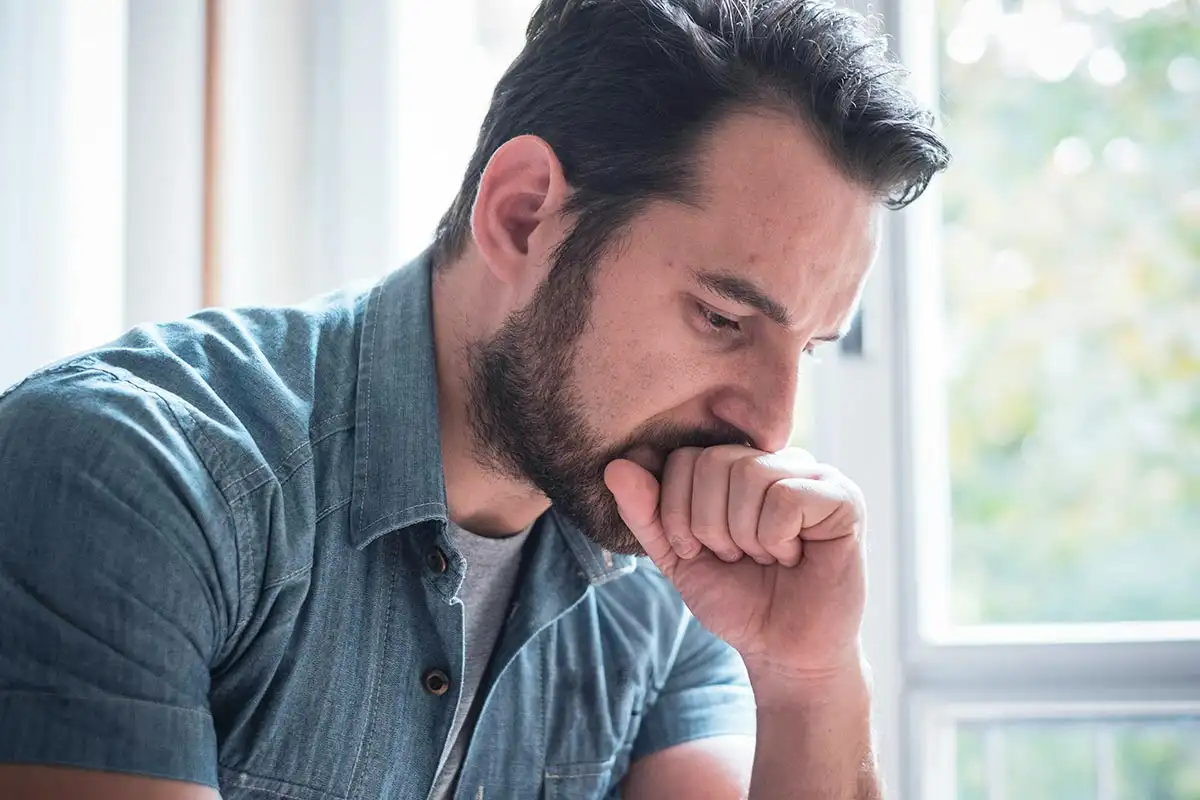
Finding Peer Support Groups in Orange County: Beyond AA and NA
Medically Reviewed by:

Dr. Marco M. Zahedi
Medical Director, Compassion Recovery Center

Dr. Michael Majeski
Licensed Psychologist (LP), Compassion Recovery Center
Table of Contents
The Journey to Connection: Why Peer Support Matters in Recovery
Embarking on the path to recovery from drug or alcohol addiction is a courageous step, one that often feels overwhelming and isolating. At Compassion Recovery Center, we understand that while professional treatment is a cornerstone of healing, the journey is significantly enriched and sustained by the power of human connection. Peer support groups offer a unique and invaluable form of fellowship, providing a space where individuals can share their experiences, draw strength from one another, and realize they are not alone. For many in Orange County and beyond, these groups become lifelines, fostering a sense of belonging and mutual understanding that is crucial for long-term sobriety. While traditional groups like Alcoholics Anonymous (AA) and Narcotics Anonymous (NA) have helped countless individuals, they are not a universal fit. Some may find the 12-step model or spiritual emphasis doesn’t resonate with their personal beliefs or recovery needs. This is perfectly okay. The landscape of addiction recovery is evolving, and thankfully, so are the options for support. The good news is that for residents of Orange County, a diverse array of peer support alternatives exists, offering different philosophies, structures, and approaches. Recognizing the limitations of a one-size-fits-all model is key to empowering individuals to find the support system that truly works for them. This guide is designed to help you navigate the world of peer support beyond the most commonly known names. We will explore various types of groups, discuss how to find them right here in Orange County (both in-person and virtually), and explain how these communities can complement professional treatment, such as the Virtual IOP Program offered by Compassion Recovery Center. Our goal is to provide you with comprehensive information so you can make informed choices that support your unique path to a healthier, substance-free life. Whether you’re just starting to consider recovery, are actively in treatment, or are looking to strengthen your long-term sobriety, understanding your options for peer support is a vital step. We believe that finding the right community can make all the difference, and we’re here to help you explore those possibilities, especially through flexible remote drug rehab Orange County services. The journey of recovery is deeply personal, but it doesn’t have to be solitary. Connection, understanding, and shared hope are powerful catalysts for change. As you read on, consider what aspects of support are most important to you. Are you looking for a secular approach? A group that incorporates mindfulness? Or perhaps the convenience of virtual support groups addiction? Orange County offers a wealth of resources, and with the rise of telehealth, accessing this support has never been easier. If you’re ready to take the next step or simply want to learn more, we encourage you to reach out today for a confidential conversation about your needs.
Understanding Peer Support Groups: Strength in Shared Experience
Before diving into the specific types of groups available, it’s important to understand what peer support groups are and why they play such a significant role in addiction recovery. At its core, a peer support group is a gathering of individuals who share similar experiences, challenges, or conditions – in this case, the struggle with substance use and the journey of recovery. These groups are typically led by peers, meaning individuals who are also in recovery or have successfully navigated similar paths, rather than by clinical professionals in a therapeutic capacity. The fundamental purpose of these groups is to provide a safe, confidential, and non-judgmental environment where members can offer and receive mutual support. This support can take many forms: emotional (empathy, encouragement), informational (sharing coping strategies, resources), and practical (accountability, shared problem-solving). The power of peer support lies in the shared understanding that comes from lived experience. Hearing someone else articulate feelings or struggles that mirror your own can be incredibly validating and can dismantle the sense of isolation that so often accompanies addiction. It’s a space where members can speak openly about their triumphs and setbacks, learn from others, and build a sense of community and belonging – essential components for sustained recovery. If you’re considering your options, understanding how these groups function can help you decide if they are a good fit for your journey, perhaps alongside our Intensive Outpatient Program (IOP). The benefits of participating in peer support groups for addiction recovery are numerous and well-documented:- Reduced Isolation and Stigma: Addiction often thrives in secrecy and shame. Peer groups break down these barriers by creating a community of understanding. Knowing you’re not alone in your struggles can be profoundly healing.
- Hope and Inspiration: Witnessing others who are further along in their recovery journey can provide tangible proof that lasting change is possible. Their stories can inspire hope and motivation, especially during difficult times.
- Shared Coping Strategies: Members often share practical tips and strategies that have helped them manage cravings, deal with triggers, and navigate challenging social situations. This collective wisdom can be an invaluable resource. You can also learn more about coping with cravings on our blog.
- Increased Self-Awareness: Hearing others share their experiences can lead to new insights about one’s own patterns of thought and behavior related to substance use.
- Development of Healthy Social Skills: Recovery often involves learning new ways to relate to others without substances. Peer groups provide a safe space to practice communication, empathy, and boundary-setting.
- Accountability: Regularly attending meetings and sharing progress with a supportive group can create a sense of accountability, encouraging members to stay committed to their recovery goals.
- Improved Emotional Regulation: Sharing feelings and receiving support can help individuals learn to manage difficult emotions in healthier ways, rather than resorting to substances. This often complements skills learned in mental health treatment.
- Cost-Effectiveness: Most peer support groups are free to attend, making them an accessible resource for ongoing support.
Exploring Alternatives to AA and NA in Orange County
For decades, Alcoholics Anonymous (AA) and Narcotics Anonymous (NA) have been the most widely recognized peer support groups for addiction. Their 12-step program has undeniably helped millions achieve and maintain sobriety. However, recovery is not a one-size-fits-all journey, and the spiritual emphasis, group dynamics, or specific tenets of 12-step programs may not resonate with everyone. Fortunately, the landscape of peer support has broadened, offering diverse philosophies and approaches that cater to a wider range of individual needs and beliefs. If you’re in Orange County and seeking alternatives, you have several strong options. Exploring these can empower you to find a community where you feel truly comfortable and supported, which is a key aspect we emphasize in our alcohol rehab programs and drug rehab programs. Non-12-step programs often differ in their core philosophies, meeting structures, and tools for recovery. Some are secular, focusing on self-empowerment and scientific principles, while others might incorporate different spiritual or mindfulness practices. The key is to find a group whose approach aligns with your personal worldview and recovery goals. Let’s explore some of the prominent alternatives to AA and NA that you might find in Orange County:SMART Recovery: Self-Management and Recovery Training
SMART Recovery (Self-Management and Recovery Training) is a global community of peer support groups that offers a secular, science-based approach to addiction recovery. Unlike the 12 steps, SMART Recovery is built upon a 4-Point Program® designed to help individuals gain independence from any addictive behavior (substances or activities). These four points are:- Building and Maintaining Motivation: Helping individuals identify their reasons for change and sustain their commitment to recovery.
- Coping with Urges: Developing effective strategies to recognize, manage, and reduce cravings and urges.
- Managing Thoughts, Feelings, and Behaviors: Learning to identify and challenge unhelpful thoughts and emotions that can lead to substance use, and developing healthier behavioral patterns. This often aligns well with techniques used in evidence-based therapies like Cognitive Behavioral Therapy (CBT).
- Living a Balanced Life: Focusing on creating a fulfilling and meaningful life by setting goals, developing healthy interests, and improving relationships.
Celebrate Recovery: A Christ-Centered Approach
Celebrate Recovery is a recovery program that is Christ-centered and based on biblical principles. While it incorporates a 12-step framework, its foundation is rooted in Christian teachings and the words of Jesus Christ, particularly the Beatitudes. This program is designed to help individuals struggling with any kind_of “hurts, habits, and hang-ups,” which can include not only substance abuse but also issues like codependency, gambling, food addiction, anger, and past trauma. The core of Celebrate Recovery is the idea that healing comes through a personal relationship with Jesus Christ. Meetings often involve worship, teaching or testimony, and small group discussions that are gender-specific and issue-specific (e.g., a chemical dependency group for men, a codependency group for women). The “Eight Recovery Principles” based on the Beatitudes guide individuals through a process of repentance, forgiveness, and spiritual growth. For those in Orange County seeking a recovery path that deeply integrates their Christian faith, “Celebrate Recovery Orange County” meetings can offer a powerful sense of community and spiritual support. The focus on a Higher Power being Jesus Christ differentiates it from the more general “Higher Power as you understand Him” concept in traditional AA.Refuge Recovery: A Buddhist-Inspired Path to Healing
Refuge Recovery is a non-profit organization and peer support community that utilizes Buddhist philosophy and practices as the foundation for its recovery program. It offers a path to healing from all forms of addiction, grounded in the teachings of mindfulness, compassion, forgiveness, and an understanding of the causes of suffering. The program is based on the core Buddhist principles of the Four Noble Truths and the Eightfold Path. Meetings typically involve guided meditation, readings from the Refuge Recovery literature, and group sharing. The emphasis is on developing awareness of one’s own mind and experiences (mindfulness), cultivating kindness and compassion towards oneself and others, and understanding the impermanent nature of cravings and difficult emotions. Refuge Recovery does not require participants to become Buddhists; rather, it offers the practices and principles as tools for anyone seeking to overcome addiction and find peace. For individuals in Orange County interested in a mindfulness-based, contemplative approach to recovery, searching for “Refuge Recovery Orange County” can lead to local or online meetings that offer a unique and profound path to healing. This approach can be particularly helpful for those also exploring mindfulness meditation practices for addiction recovery. Other alternatives may also exist, such as Women for Sobriety (WFS), which focuses on self-empowerment for women, or LifeRing Secular Recovery, which emphasizes personal recovery plans and a secular approach. The key is to explore these options and find a community that feels right for you. Don’t hesitate to try a few different meetings. If you need help navigating these choices, Compassion Recovery Center can provide guidance as part of your overall recovery planning. Feel free to contact us for a confidential assessment.
Finding Peer Support Groups in Orange County: Your Local Guide
Once you’ve decided to explore peer support groups, the next step is actually finding them. Orange County is a large and diverse area, and while this means there are many options, it can sometimes feel overwhelming to know where to start. Whether you’re looking for one of the alternatives mentioned above like SMART Recovery, Celebrate Recovery, or Refuge Recovery, or even specialized AA/NA meetings, a little guidance can go a long way. Remember, the goal is to find a group where you feel safe, understood, and supported. If you’re already considering or enrolled in a Virtual IOP Program, integrating local peer support can significantly enhance your recovery. Here are some practical tips and resources for locating peer support groups in Orange County: 1. Start with Online Searches: The internet is your most immediate and comprehensive tool. Use specific search terms relevant to your interests and location. For example:- “SMART Recovery Orange County”
- “Celebrate Recovery near [Your City in OC, e.g., Irvine, Anaheim, Newport Beach]”
- “Refuge Recovery meetings Orange County CA”
- “Secular addiction support groups Orange County”
- “Women’s recovery groups Orange County”
- “LGBTQ+ friendly support groups Orange County addiction”
- SAMHSA (Substance Abuse and Mental Health Services Administration): Their National Helpline (1-800-662-HELP) and online Behavioral Health Treatment Services Locator (findtreatment.gov) can help you find various types of support, including peer groups.
- Orange County Health Care Agency: The county’s official health agency website may list resources or provide contact information for behavioral health services that can guide you to local support groups.
- 2-1-1 Orange County: This is a free, confidential information and referral service that connects people to a wide range of health and human services, potentially including addiction support groups.
- Try Different Groups: Don’t feel discouraged if the first group you attend doesn’t feel like the right fit. It’s common to visit several different meetings before finding one where you feel comfortable. Each group has its own dynamic.
- Consider the Focus: Some groups might be general, while others could be specific to a particular substance, age group, gender, or profession. Think about what environment would make you feel most at ease.
- In-Person vs. Virtual: As we’ll discuss more, Orange County has both in-person and virtual support groups addiction. Consider which format best suits your lifestyle, comfort level, and accessibility needs.
- Listen First: When you attend a new meeting, it’s okay to just listen initially. You don’t have to share until you feel ready.
- Confidentiality: Reputable groups have strong confidentiality guidelines. What’s shared in the group should stay in the group.
Embracing Flexibility: Virtual and Remote Support Options
In today’s digitally connected world, the landscape of addiction support has expanded far beyond physical meeting rooms. Virtual and remote support options have become increasingly vital, particularly for individuals seeking flexibility, accessibility, and a wider range of choices. For residents of Orange County, where commutes can be long and schedules demanding, telehealth addiction treatment and online peer support groups offer a convenient and effective way to engage in recovery. At Compassion Recovery Center, we are strong proponents of virtual care, as evidenced by our comprehensive Virtual IOP Program, and we recognize the immense value of online peer communities. The benefits of virtual support groups are compelling and address many common barriers to accessing help:- Unmatched Accessibility: Virtual meetings eliminate geographical limitations. Whether you live in a remote part of Orange County, have mobility issues, lack reliable transportation, or face childcare challenges, online groups bring support directly to your home. This increased accessibility ensures that more people can connect with the help they need. Our blog post on accessibility in recovery highlights how virtual treatment reaches underserved communities.
- Convenience and Flexibility: Online meetings are often available at various times throughout the day and night, making it easier to fit support into a busy work schedule, family commitments, or academic pursuits. This is particularly beneficial for professionals and parents in Orange County.
- Anonymity and Reduced Stigma: For individuals who are hesitant to attend in-person meetings due to concerns about privacy or stigma, virtual groups can offer a greater sense of anonymity. Some platforms allow participation with cameras off or using only a first name, which can be a comfortable entry point into peer support.
- Wider Range of Choices: The internet opens up access to a global network of support groups. You’re not limited to the specific types of meetings available in your immediate local area. This means you can find groups tailored to very specific needs, philosophies (like SMART Recovery or Refuge Recovery online), or demographics.
- Consistency of Support: If you travel for work or move, you can often continue attending your preferred virtual support group, maintaining a consistent connection with your recovery community. This is a significant advantage of virtual rehab California options.
- Comfort of Your Own Environment: Attending meetings from the safety and comfort of your own home can reduce anxiety and make it easier to open up and engage.
- Find a Meeting: Use the organization’s website or online directories to find a meeting that fits your schedule and interest. Note the platform being used (e.g., Zoom, Google Meet, Microsoft Teams).
- Technical Setup: Ensure you have a stable internet connection, a device (computer, tablet, or smartphone) with a microphone and camera (though camera use is often optional). Download any necessary software beforehand. Consider creating a comfortable and private space at home for your meetings.
- Joining the Meeting: You’ll typically receive a link or meeting ID to join. Click the link or enter the ID at the scheduled time.
- Meeting Etiquette:
- Mute Yourself: Mute your microphone when you’re not speaking to minimize background noise.
- Camera On/Off: Decide if you’re comfortable having your camera on. Seeing faces can enhance connection, but your comfort is paramount.
- Confidentiality: Remember that confidentiality principles still apply. Do not record meetings or share personal information discussed in the group outside of it.
- Sharing: Raise your virtual hand or follow the facilitator’s instructions for sharing. Be mindful of sharing time so others have a chance to speak.
- Respect: Treat all members with respect, even if their views differ from yours.
- Managing “Zoom Fatigue”: If you attend many virtual meetings, combating Zoom fatigue is important. Take breaks, stretch, and ensure you’re also engaging in offline activities that support your well-being.
Integrating Peer Support with Professional Treatment: A Powerful Combination
While peer support groups offer invaluable camaraderie, shared experience, and ongoing encouragement, professional addiction treatment provides the clinical expertise, structured therapeutic interventions, and, when necessary, medical oversight essential for addressing the complex nature of substance use disorders. The most robust and often most successful recovery journeys involve a thoughtful integration of both. At Compassion Recovery Center, we firmly believe that combining services like our Virtual IOP Program with active participation in peer support creates a powerful synergy that enhances healing and promotes lasting sobriety for our clients in Orange County and throughout California. The importance of this combination stems from the distinct yet complementary roles each plays:- Clinical Expertise vs. Lived Experience: Professional treatment, such as that offered in an Intensive Outpatient Program (IOP) or Partial Hospitalization Program (PHP), is delivered by licensed therapists and medical professionals. They conduct assessments, develop individualized treatment plans, utilize evidence-based therapies (like CBT, DBT), manage co-occurring mental health conditions through dual diagnosis treatment, and can prescribe and oversee Medication-Assisted Treatment (MAT). Peer support, conversely, is about shared identity and mutual aid from those who have walked a similar path. One provides the “know-how” of clinical recovery, the other the “been-there” understanding and fellowship.
- Structured Intervention vs. Ongoing Support: Professional treatment programs are typically time-limited and intensive, designed to equip individuals with the foundational skills and stability needed for early recovery. Peer support groups offer a less structured, ongoing source of connection and reinforcement that can last for years, helping individuals navigate the long-term challenges of maintaining sobriety.
- Addressing Underlying Issues vs. Daily Coping: Therapy within professional treatment often delves into the root causes of addiction, past trauma, and unhealthy coping mechanisms. Peer support groups provide a space to discuss daily challenges, practice new coping skills learned in therapy, and receive immediate encouragement.
- Skill Reinforcement: Skills learned in our online CBT therapy sessions, such as identifying triggers, managing cravings, or improving communication, can be practiced and reinforced in the real-world context of a peer support group.
- Emotional Processing: Therapy sessions provide a safe space to process deep-seated emotional issues. Peer groups can then offer ongoing emotional validation and support as individuals navigate these feelings in their daily lives.
- Relapse Prevention Planning: Our clinicians work with clients to develop robust relapse prevention plans. Peer support groups offer a network of accountability and immediate help if cravings or high-risk situations arise. Discussing these plans in a group can also yield practical advice from others. You can learn more about dealing with triggers from our resources.
- Support for Co-occurring Disorders: Many individuals struggle with both addiction and mental health conditions like depression or anxiety. Our dual diagnosis treatment addresses these concurrently. Peer support groups, especially those focused on mental health or dual recovery, can provide additional understanding for these intertwined challenges.
- Guidance in Finding Groups: Our case managers and therapists can help clients identify and connect with peer support groups—whether it’s SMART Recovery Orange County, a local Celebrate Recovery chapter, or an online Refuge Recovery meeting—that align with their individual needs and preferences.
- A working professional in Irvine participates in Compassion Recovery Center’s evening Virtual IOP Program. During the day or on weekends, they attend online SMART Recovery meetings that focus on practical coping skills, reinforcing what they learn in therapy.
- Someone receiving MAT treatment online through our services for opioid use disorder finds immense comfort and hope by also joining a local NA group or a specialized MAT-friendly peer support group, reducing feelings of isolation.
- A young adult in Anaheim, struggling with both alcohol use and social anxiety, engages in individual online CBT therapy with us and attends a virtual young person’s AA meeting, gradually building confidence in social settings.
Building Your Personal Support Network: Beyond Formal Groups
While formal peer support groups like SMART Recovery or Celebrate Recovery offer structured environments for connection, building a comprehensive personal support network extends beyond these meetings. A truly resilient recovery is often supported by a web of positive relationships and a healthy lifestyle that reinforces sobriety. For those in Orange County embarking on this journey with Compassion Recovery Center, especially through our remote drug rehab Orange County services, actively cultivating this broader network is a key aspect of long-term success and well-being. This involves not only seeking out supportive individuals but also learning to navigate relationships that may have been impacted by past substance use. Here are some essential tips for creating a robust and nurturing personal support system: 1. Identify and Nurture Sober Friendships: Recovery often means re-evaluating friendships. Some old friends may not be supportive of your sober lifestyle, or their activities might revolve around substance use. It’s crucial to connect with people who respect your recovery and share healthy interests. This might include:- Individuals you meet in peer support groups who you connect with outside of meetings.
- People you meet through sober social events, hobbies, or volunteer activities. There are many sober fun activities to explore.
- Reconnect with friends or family members who have always been a positive influence.
Your Path, Your Choice: Finding the Right Support in Orange County
The journey of recovery from drug or alcohol addiction is deeply personal, and the support systems you choose should reflect your individual needs, beliefs, and circumstances. As we’ve explored, Orange County offers a diverse landscape of peer support options that extend far beyond the traditional AA and NA meetings. From the science-based approach of SMART Recovery to the faith-centered community of Celebrate Recovery and the mindfulness-infused path of Refuge Recovery, there are alternatives designed to resonate with a wide array of individuals. The key is understanding that you have choices, and finding the “right fit” is crucial for sustained engagement and a positive recovery experience. The rise of virtual support groups addiction has further revolutionized access to these vital communities, making it easier than ever for Orange County residents to connect with support regardless of geographical constraints or busy schedules. This flexibility aligns perfectly with modern approaches to care, such as the telehealth addiction treatment services provided by Compassion Recovery Center. We believe that empowering you with information about these diverse peer support options, alongside our comprehensive Orange County IOP and other remote programs, allows you to build a truly personalized and effective recovery plan. Remember, peer support is a powerful complement to professional treatment. Integrating the shared wisdom and camaraderie of groups with evidence-based therapies like online CBT therapy or, when appropriate, MAT treatment online, creates a robust framework for healing. Building a broader personal support network, nurturing healthy relationships, and perhaps engaging in virtual couples counseling rehab, further strengthens this foundation. We encourage you to be curious, to explore, and to be patient with yourself as you seek out the peer support that resonates most deeply with you. It’s okay to try different groups until you find a community where you feel understood, respected, and empowered. Your recovery journey is unique, and the support you gather along the way should honor that uniqueness. If you’re in Orange County or anywhere in California and are ready to take the next step, or if you simply want more guidance on navigating your options for peer support and professional remote drug rehab Orange County services, Compassion Recovery Center is here for you. We can help you understand how our flexible telehealth programs can fit into your life and support your long-term well-being. Don’t hesitate to reach out today for a confidential conversation. You can also verify your insurance online or start your free assessment to begin exploring your treatment options with us. Your journey to a healthier, more connected life can start now.What are some alternatives to AA and NA in Orange County?
Orange County offers several alternatives to traditional 12-step programs like AA and NA. Prominent options include SMART Recovery, which uses a science-based 4-Point Program®; Celebrate Recovery, a Christ-centered 12-step program for various “hurts, habits, and hang-ups”; and Refuge Recovery, which is inspired by Buddhist principles of mindfulness and compassion. Many of these have both in-person meetings in Orange County and accessible online peer support groups.
How can I find peer support groups in Orange County?
You can find peer support groups in Orange County by using online search engines with specific terms (e.g., “SMART Recovery Orange County”), checking the official websites of support organizations (which often have meeting finders), utilizing national directories like SAMHSA’s treatment locator, or contacting local resources such as the Orange County Health Care Agency. Addiction treatment centers, like Compassion Recovery Center, can also provide recommendations for suitable groups that complement their remote IOP California services.
Are there virtual support groups available for addiction recovery?
Yes, there are many virtual support groups available for addiction recovery, offering significant benefits in accessibility and convenience. Most major peer support organizations like AA, NA, SMART Recovery, Celebrate Recovery, and Refuge Recovery host numerous online meetings. These virtual support groups addiction allow individuals in Orange County and beyond to connect from home, fitting support easily into their lives and complementing telehealth services like those offered by Compassion Recovery Center.
How do peer support groups differ from professional therapy?
Peer support groups are typically led by individuals with lived experience in recovery and focus on mutual support, shared understanding, and fellowship. They are not clinical treatment. Professional therapy, such as online CBT therapy or programs like our Virtual IOP Program, is conducted by licensed clinicians who provide evidence-based interventions, diagnosis, and structured treatment plans. While different, they are highly complementary, with peer support offering ongoing community and therapy addressing deeper clinical needs.
Can I combine peer support with professional treatment for better results?
Absolutely. Combining peer support with professional treatment is highly recommended and often leads to better, more sustainable recovery outcomes. Professional services like Orange County IOP provide clinical expertise and therapeutic tools, while peer support groups offer ongoing encouragement, shared experience, and a sense of community. Compassion Recovery Center encourages clients in our telehealth addiction treatment programs to engage in peer support as part of a comprehensive approach to recovery. You can contact us for a confidential assessment to learn more.
Struggling to balance life while needing support? Get expert virtual care and start your recovery journey, anytime, anywhere.
We’re learning more each day.
Researchers and doctors are making exciting progress in understanding mental health and addiction—bringing hope to millions.
Your genes don’t define you.
Genetics can play a part, but they don’t decide your future. Mental health is shaped by many factors, and healing is always possible.
There's no one-size-fits-all.
The right treatment often includes a mix of therapy, medication, and compassionate care—tailored just for you.


















